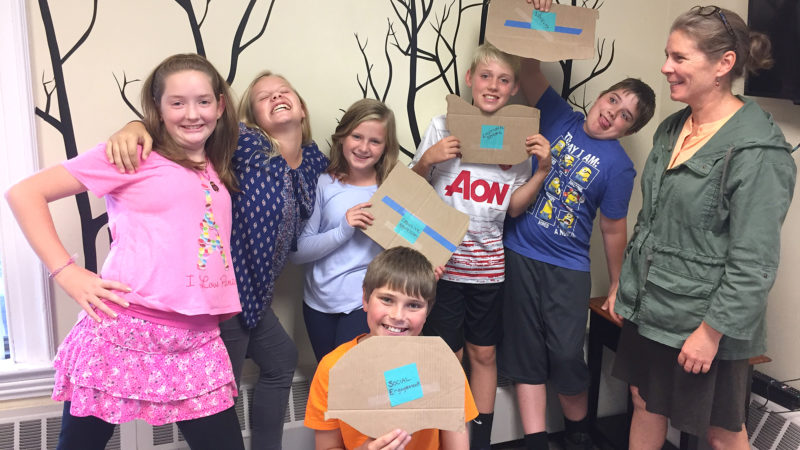Sixth-grade seminar and the middle school brain
Different brain systems come online at different times. During the early teen years, the social-emotional circuitry of the limbic system becomes amplified, and teens suddenly feel their own feelings more intensely, are more sensitive to others, and have “higher highs and lower lows.” But the seat of their self-control, the frontal cortex, doesn’t fully consolidate until the mid-twenties. As a result, teens’ self-management skills—decision-making, self-awareness, abstract thought—aren’t quite up to regulating all of the changes.
Dr. Dan Siegel
Professor of clinical psychiatry, UCLA
If you’re the parent of a adolescent child, this may sound like the answer to a familiar and vexing question: “Just what is going on in the middle school brain?” This question was the impetus behind the launch of sixth-grade seminar this year.
Sixth-graders love the opportunity to talk outside of their regular classes. One student reported that “seminar is even better than my free period”—an astounding statement considering that there is nothing that new sixth-graders yearn for more than their “frees.”
“It’s a really fun way to learn about how the brain works,” says Eliza. “We get to talk about emotions, getting in contact with your feelings, and how to be a good listener.” Classmate Abdi was initially worried that seminar would be boring. “But there are a lot of great activities that help us learn about the brain. We pass around the singing bowl, which calms me down. It’s fun to do different experiments every week.”
“It’s work, but it’s more relaxed and calm,” says Eliza. “It gives you time to reflect.”
On a typical day, students arrive, sit, and settle in the new seminar space. Set up like a home, with calming visuals and comfortable furniture, the environment is intended to quiet the body and mind. Sessions often include a physical activity like neck and wrist rolls and basic yoga poses. Getting up and moving around is beneficial for the sixth-grade brain. “Oxygenated blood circulating through the body and brain means that students can sustain their attention,” says teacher Kate Ziminsky.
Students learn from each other’s experiences and discuss their personal approaches to reducing stress and anxiety. “The way I push through my own anxiety about a test is probably different from the way you do,” says Middle School Director Divya Muralidhara. “Students learn different strategies from each other by discussing their approaches.”
In the middle school years, students experience an intense shift to focusing on their peers. The “comparing mind,” along with fear of missing out, becomes a significant issue. Since social media users usually share only positive experiences, feelings of loneliness can be reinforced. “And that feeling is highlighted every time you look at a photo of smiling people that you’re not in,” says Assistant Head for Student Life Lydia Maier. “Students who have a stronger sense of self are less likely to worry about being excluded.”
Seminar also represents an opportunity to develop a sense of perspective. “If kids don’t have the opportunity to stop and ask, ‘What have I learned, why am I doing this, and what will I do differently when I go to school tomorrow,’ then something is lost,” says Lydia. “All Waynflete classes involve some degree of experiential learning and reflection. But seminar is one of the few opportunities to reflect on the experience of being a student at Waynflete.”
Faculty have received positive anecdotal feedback from parents, many of whom feel ill-at-ease with navigating social media and technology issues with their children. Students are sometimes required to interview their parents about their middle school experiences; parents report that these assignments have led to meaningful conversations.
Planning is underway to extend seminar to seventh and eighth grades in the 2018-2019 academic year. In the meantime, though it’s impossible to establish a causal relationship (every class is different), Divya reports that there have been noticeably fewer sixth-grade social issues since the launch of seminar this year.
Learn more about the teenage brain:
What’s going on in the teenage brain?



